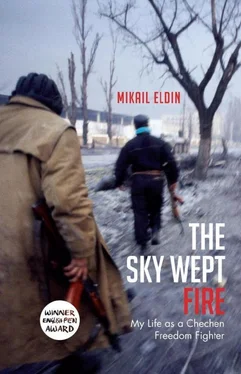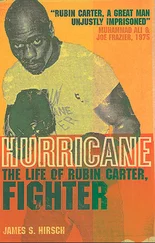The men’s speeches are often turned inward, as if they’re talking to themselves. And in these extremely candid monologues you glimpse their infinite weariness with this unending war, their yearning for a life of peace. They dream of never carrying a weapon, of never having to use it. They never talk of the war itself. This is the wisdom of men who have looked many times into the empty, bottomless eyes of death. In conversations among themselves, they often talk about the past. All their memories are of peaceful life before the war, when they were ordinary guys in the countryside or city, studying and working, having friends and falling in love. There are plenty of conversations about memories and just as many about future plans for a peaceful post-war life. They dream of ordinary bread as if it were the most exquisite of dishes. They name the precise addresses of cafés and restaurants and the time of day they plan to visit them, listing what they’ll order after the war. It is, of course, a very bad idea to think about food when you’re hungry. It only makes you hungrier. But then again, these dreams help them live, striving towards an objective that perhaps seems prosaic: eating. Yet was it not through mankind’s desire to eat nice food and work less hard that modern progress was born? Strange as it may sound, I sense no malice towards the enemy. Hatred of course is present, but malice – the insatiable, senseless malice that generates yet more senseless, cruel malice, which their opponents demonstrate so often in life, on the television and in the press – is not. There is only cold, controlled hatred and each man views his participation in the war as a necessity.
Tonight we are leaving. We are sealed in, but not so tightly that we cannot find a passage out. Below, on the bank of a roaring mountain river, the enemy have placed checkpoints spaced a hundred metres from each other. Tonight we shall pass between them. The river is shallow, it only comes up to the waist. But it is a mountain river, and it flows very swiftly. In profound silence and darkness, you cross it in groups, clinging to each other to avoid being toppled and swept away by the current. During the crossing you lose two MANPADS, which the water tears from a horse that falls in, and two fighters. They are swept along the river and two days later the enemy will fish out their bodies downstream. By crossing the river at this point, you are clearly giving away your location, but you have the entire night ahead. And you will make full use of this night. Angel once again pulls off his favourite manoeuvre. You make a sudden sharp turn to one side that comes as a surprise even to you, and, going flat out all night, by the morning you find yourselves in a deep ravine far removed from where you passed through the checkpoints. Along the floor of the ravine flows a nameless little river. The morning mist allows you to roast another horse. In the daytime you ought to catch up on sleep, but it is sunny and so you spend the day washing, laundering your clothes and tidying yourselves up. You didn’t wash at all during the entire week you were on the mountainside. Neither enemy air reconnaissance nor anything else disturbs you. Nobody is expecting you to be here. So you can travel on safely even by day. But you are utterly drained by hunger and you cannot walk fast. You observe the commander. He is heaving a rucksack which holds his personal belongings plus extra supplies of ammunition and he is armed with a heavy, large-calibre RPK machine gun. He goes forward to the head of the column, puts his rucksack down and walks to the back to take a rucksack from a fighter who’s fallen behind. Day after day he moves up and down the column like this. Occasionally you slaughter a horse, but there is barely enough meat to give you a taste. Often you have to eat it raw. Now and then you manage to pick some forest fruits and berries. You pass so close to the enemy that you have to gesture to each other with signs. The enemy are oblivious to your presence here, but you can see and hear them perfectly. The fog, though, does not always come to your aid.
You’ve always suspected that it is only his living conditions that prevent man from going back to his roots. After all, no matter how loudly modern man might crow about his achievements in equality and humaneness, we are the sons of Cain, who murdered his own brother. Or, according to Darwin’s theory, so popular among atheists, we’re just ex-monkeys. Our distant ancestors did not stop to think when they faced the question of survival. And when modern man falls under the influence of an urge such as hunger, thirst, sexual arousal or greed, he makes a leap back to the psychology of his ancestors, triggering his instinctive survival mechanism; we term this ‘going wild’. Given the right conditions, modern man can undergo something akin to becoming ‘wild’, although he is stopped from truly returning to a wild state by a number of factors.
You have been moving slowly for several days through the dense mountain forest and gradually going wild. There isn’t so much as a crumb left from the field rations. You’ve polished off even the saccharine. You cannot use all of the horses for meat – nobody has the strength to carry the extra load of the heavy MANPADS, and discarding weapons and ammunition goes against the guerrillas’ principles. Sod’s law dictates that there is no wild fruit in this forest. And there is no chance of hunting successfully; there are too many of you and the wild animals can scent you from afar. Of course, not all of you go wild, not even most of you: only those weakest in spirit. It’s true they can’t seize anything from the others by force. There’s nothing to seize. But even if there were something, it wouldn’t happen. There is no ‘fittest’ here. Everyone is armed, and everyone knows how to shoot. Here strength means only fortitude of spirit. Everyone’s nerves are strained to the limit. But only the weak of spirit have reached nervous meltdown. No, they do not try heroically attacking the enemy singlehanded – their survival instinct is still functioning. They simply make life miserable for the rest of their comrades. They pick a fight over the slightest thing; the tiniest trifle makes them lose their temper. Their more restrained comrades, who make up the vast majority of the fighters, put up with their behaviour and do not succumb to the same temptation. You watch these people and can barely contain a fierce wave of anger welling up from somewhere deep inside. You wonder, Why exactly should we tolerate them? This use of the collective ‘we’ helps you position yourself mentally as upholder of the common interest. But then it dawns on you that you too are simply turning into one of them, and you summon up the strength to restrain yourself. Generally speaking, a man who is weak of spirit will be a danger in any abnormal situation. Whether it’s hunger, exhaustion or any serious threat to life. You once saw a soldier who found himself near a large number of enemy forces, and thus close to death, almost lost his mind with fear. Like a dog backed into a corner, he was picking fights with his comrades over the most trivial things, threatening to give them away to the enemy and get them all killed. It was only when one of his comrades-in-arms rather elegantly conveyed a genuine death threat that he pulled himself together and stopped endangering the entire group. Afterwards, when the terror of death had passed, he apologized to everyone with whom he’d been spoiling for a fight. Now, as you watch the fighters similarly afflicted, you realize that if any of them were given the chance of surviving alone, they would seize it without a second thought. But even in their present state, they can see that survival alone would be impossible. They would have nowhere to go: the enemy are all around. Their only option is to stay with the group. And so that’s what they do, while they grumble, bark at everyone and lose their temper. You draw your own conclusion from this somewhat subjective analysis, and it is clearly not in their favour.
Читать дальше












